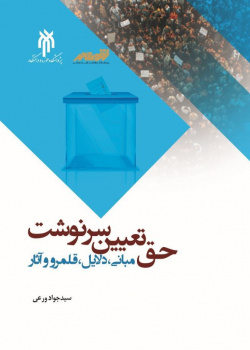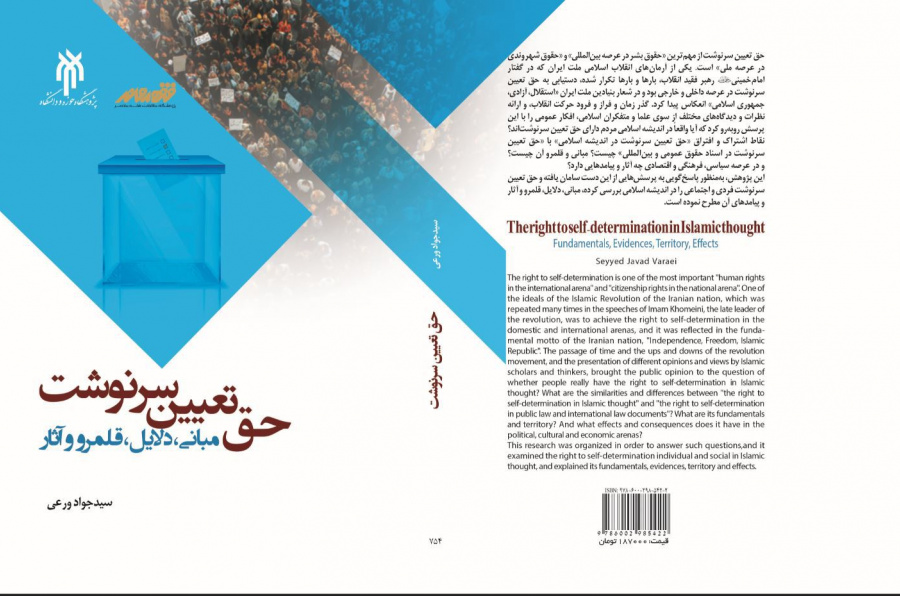



حق تعیین سرنوشت مبانی، دلایل، قلمرو و آثار
The right to self-determination in Islamic thought Fundamentals, Evidences, Territory, Effects
حق تعیین سرنوشت از مهمترین «حقوق بشر در عرصه بینالمللی» و «حقوق شهروندی در عرصه ملی» است. یکی از آرمانهای انقلاب اسلامی ملت ایران که در گفتار امامخمینی6 رهبر فقید انقلاب، بارها و بارها تکرار شده، دستیابی به حق تعیین سرنوشت در عرصه داخلی و خارجی بود و در شعار بنیادین ملت ایران «استقلال، آزادی، جمهوری اسلامی» انعکاس پیدا کرد. گذر زمان و فراز و فرود حرکت انقلاب، و ارائه نظرات و دیدگاههای مختلف از سوی علما و متفکران اسلامی، افکار عمومی را با این پرسش روبهرو کرد که آیا واقعاً در اندیشه اسلامی مردم دارای حق تعیین سرنوشتاند؟ نقاط اشتراک و افتراق «حق تعیین سرنوشت در اندیشه اسلامی» با «حق تعیین سرنوشت در اسناد حقوق عمومی و بینالمللی» چیست؟ مبانی و قلمرو آن چیست؟ و در عرصه سیاسی، فرهنگی و اقتصادی چه آثار و پیامدهایی دارد؟
این پژوهش، بهمنظور پاسخگویی به پرسشهایی از این دست سامان یافته و حق تعیین سرنوشت فردی و اجتماعی را در اندیشه اسلامی بررسی کرده، مبانی، دلایل، قلمرو و آثار و پیامدهای آن مطرح نموده است.
Seyyed Javad Varaei
The right to self-determination is one of the most important "human rights in the international arena" and "citizenship rights in the national arena". One of the ideals of the Islamic Revolution of the Iranian nation, which was repeated many times in the speeches of Imam Khomeini, the late leader of the revolution, was to achieve the right to self-determination in the domestic and international arenas, and it was reflected in the fundamental motto of the Iranian nation, "Independence, Freedom, Islamic Republic". The passage of time and the ups and downs of the revolution movement, and the presentation of different opinions and views by Islamic scholars and thinkers, brought the public opinion to the question of whether people really have the right to self-determination in Islamic thought? What are the similarities and differences between "the right to self-determination in Islamic thought" and "the right to self-determination in public law and international law documents"? What are its fundamentals and territory? And what effects and consequences does it have in the political, cultural and economic arenas?
This research was organized in order to answer such questions,and it examined the right to self-determination individual and social in Islamic thought, and explained its fundamentals, evidences, territory and effects.
